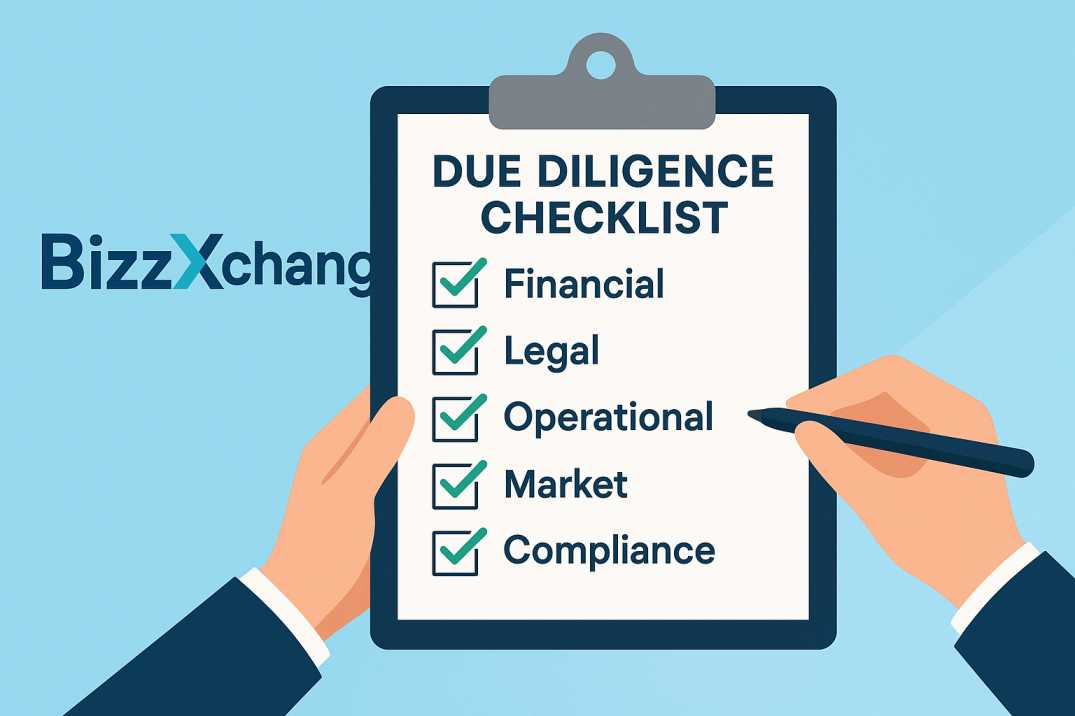14th Sep, 2025| 5 Min read.

Due Diligence Checklist
Due diligence check list
1. Financial Due Diligence
- ✅
Review last 3–5 years audited financial statements (P&L,
Balance Sheet, Cash Flow).
- ✅
Check bank statements for consistency with reported revenues.
- ✅
Verify outstanding debts, loans, and overdrafts.
- ✅
Analyze tax returns filed and confirm there are no pending
disputes.
- ✅
Review accounts receivable (who owes money, how old are the dues).
- ✅
Review accounts payable (suppliers/vendors waiting for payment).
- ✅
Confirm value and condition of assets (machinery, land, inventory,
vehicles).
- ✅
Look at profit margins, sales trends, and seasonality.
2. Legal Due Diligence
- ✅
Verify business registration documents (Certificate of
Incorporation, GST, PAN, TAN).
- ✅
Check all licenses and permits are valid (industry-specific
approvals).
- ✅
Review MOA, AOA, partnership agreements, LLP deed (as applicable).
- ✅
Check for ongoing or past litigation (labour disputes, consumer
cases, supplier cases).
- ✅
Verify intellectual property rights (patents, trademarks,
copyrights).
- ✅
Review rental/lease agreements of office, factory, or warehouse.
- ✅
Ensure compliance with labour laws (PF, ESI, gratuity, bonus).
3. Operational Due Diligence
- ✅
Inspect machinery, IT systems, software, and equipment (age,
efficiency, maintenance).
- ✅
Review supplier and vendor contracts (terms, duration, dependence
on few suppliers).
- ✅
Check customer contracts (especially long-term or bulk buyers).
- ✅
Assess inventory quality (no expired, obsolete, or damaged stock).
- ✅
Review IT systems, ERP, or CRM software being used.
- ✅
Analyze business processes (are they well-documented or
founder-dependent?).
4. Human Resource Due Diligence
- ✅
Review list of employees, their designations, and salaries.
- ✅
Check employment contracts and non-compete agreements.
- ✅
Verify PF/ESI contributions and labour law compliance.
- ✅
Understand dependency on key employees or the founder.
- ✅
Identify pending dues (gratuity, bonus, incentives).
5. Market & Strategic Due Diligence
- ✅
Analyze industry trends (growing, stable, or declining).
- ✅
Study competitor landscape (pricing, market share, threats).
- ✅
Review customer concentration risk (is revenue dependent on 1–2
clients?).
- ✅
Assess brand reputation and goodwill in the market.
- ✅
Check distribution channels, sales partners, and online presence.
- ✅
Evaluate growth potential & scalability of the business.
6. Valuation & Deal Structure
- ✅
Decide on valuation method (Asset-based, Income-based, or
Market-based).
- ✅
Check if asking price includes goodwill (and whether it’s
justified).
- ✅
Plan payment structure (lump sum, installments, or earn-out based
on performance).
- ✅
Negotiate warranties and indemnities (seller takes responsibility
for hidden liabilities).
- ✅
Finalize non-compete clause (seller cannot start same business
immediately).
✅ Final Step: Professional
Involvement
Before closing the deal:
- Hire a
Chartered Accountant (CA) → for financial audit.
- Hire a
Lawyer → for legal compliance, contracts, and liabilities.
- Hire
an Industry Expert → for operational and market analysis.